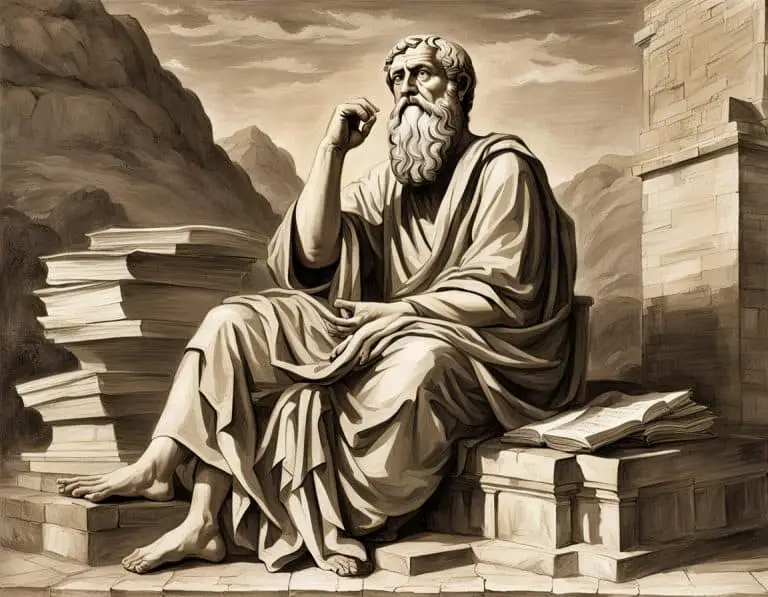Exploring Plato’s Written Works
Plato’s written works are a treasure trove of philosophical insights and thought-provoking ideas. Through dialogues and writings, Plato delves into complex topics such as justice, ethics, politics, and metaphysics. His most famous work, “The Republic,” explores the nature of justice and the ideal society, challenging readers to critically examine their beliefs and values. Additionally, “The Symposium” offers a profound exploration of love and beauty, while “Phaedo” delves into the nature of the soul and immortality.
As one delves into Plato’s written works, they encounter a rich tapestry of teachings conveyed through engaging dialogues and philosophical inquiries. The dialogues often feature Socrates as a central figure, engaging in dialectical exchanges that challenge conventional wisdom and encourage critical thinking. Readers are invited to question their assumptions and ponder the deeper meanings behind virtue, knowledge, and the nature of reality. Plato’s written works continue to captivate readers and spark intellectual discussions, showcasing the enduring relevance of his philosophical inquiries.
Analyzing How Plato’s Writings Reflect His Teaching Style
Plato’s writings serve as a window into his distinctive teaching style, illuminating his profound philosophical insights and pedagogical approach. Through his dialogues, he masterfully weaves together intricate arguments and thought-provoking questions, inviting readers to engage in critical thinking and self-reflection. His Socratic method, characterized by a series of probing inquiries and intellectual exchanges, emphasizes the importance of active participation and inquiry-based learning.
Plato’s dialogues not only convey philosophical concepts but also demonstrate his commitment to fostering intellectual growth and moral development in his students. By presenting philosophical ideas in dialogue form, Plato cultivates a dynamic and interactive learning environment that encourages individuals to challenge assumptions, consider multiple perspectives, and pursue a deeper understanding of truth and virtue. This dialogical approach reflects Plato’s belief in the transformative power of engaged discourse and collaborative inquiry as essential components of the educational process.
Understanding Plato’s Legacy in Education
Plato’s profound influence on the field of education has been a cornerstone of philosophical thought for centuries. His emphasis on the pursuit of knowledge and the development of critical thinking skills has shaped educational practices around the world. By delving into Plato’s dialogues and writings, educators can gain valuable insights into the essence of teaching and learning that transcend time and culture.
Plato believed that education should be holistic, aiming to cultivate not only the mind but also the moral character of individuals. His concept of education focused on the development of virtue and the attainment of wisdom, guiding students towards a more enlightened and virtuous life. The legacy of Plato’s educational philosophy continues to inspire educators to this day, emphasizing the importance of ethics, reason, and the pursuit of truth in shaping the minds of future generations.
Tracing the Continued Influence of Plato’s Ideas on Modern Education Systems
Plato’s educational philosophy has left a lasting impact on modern education systems worldwide. His emphasis on critical thinking, dialogue, and the pursuit of knowledge continues to shape the way educators approach teaching and learning today. The Socratic method, a hallmark of Plato’s pedagogy, encourages students to engage in thoughtful discussions, ask probing questions, and seek truth through reasoning.
Furthermore, Plato’s belief in the importance of developing well-rounded individuals has influenced contemporary educational practices. The idea of educating the whole person, not just focusing on intellectual growth but also moral and ethical development, resonates in modern schools and universities. By integrating character education, ethics courses, and extracurricular activities that promote social and emotional learning, educators aim to instill values and virtues in students, mirroring Plato’s holistic approach to education.
Discovering Plato’s Views on Virtue
When uncovering Plato’s views on virtue, it becomes apparent that his concept of virtue extended far beyond mere adherence to ethical norms. For Plato, virtue was intricately tied to the idea of achieving harmony within the soul by aligning reason, courage, and moderation. His teachings emphasized the importance of cultivating wisdom and seeking truth, virtues that were not just individual traits but essential components of a just society. Through his dialogues, such as “The Republic” and “Protagoras,” Plato delves into the complexities of virtue, offering profound insights into the nature of goodness and the pursuit of excellence.
Plato’s approach to virtue was not just theoretical; it was deeply practical in nature. He believed that true virtue could only be attained through a process of education and self-examination. By engaging in philosophical inquiry and striving for intellectual growth, individuals could transcend their base desires and elevate themselves to a higher moral plane. Plato’s teachings on virtue were not limited to intellectual discourse but were meant to be applied in everyday life, guiding individuals towards the path of self-improvement and enlightenment.
Examining Plato’s Concept of Virtue as Taught to His Disciples
Plato’s teachings on virtue were deeply ingrained in his mentorship and guidance to his disciples. Through dialogues such as “The Republic” and “Protagoras,” Plato expounded on the essence of virtue and its importance in leading a just and fulfilling life. His concept of virtue extended beyond mere adherence to rules; rather, it encompassed the development of one’s character and the pursuit of wisdom and truth. Plato believed that true virtue arose from a harmonious balance between reason, spirit, and appetite, where reason governs and guides the other aspects of the soul towards the ultimate good.
In the dialogues, Plato portrays Socrates engaging in discussions with his disciples, challenging their beliefs and probing them to question conventional notions of virtue. Through these dialogues, Plato emphasized the Socratic method of inquiry and critical thinking as essential tools for self-discovery and intellectual growth. By encouraging his disciples to question assumptions and delve into the depths of their own beliefs, Plato fostered a culture of intellectual curiosity and self-reflection that laid the foundation for his teachings on virtue.
Related Links
What Were the Key Influences on Plato’s Education
How to Understand Plato’s Early Education
